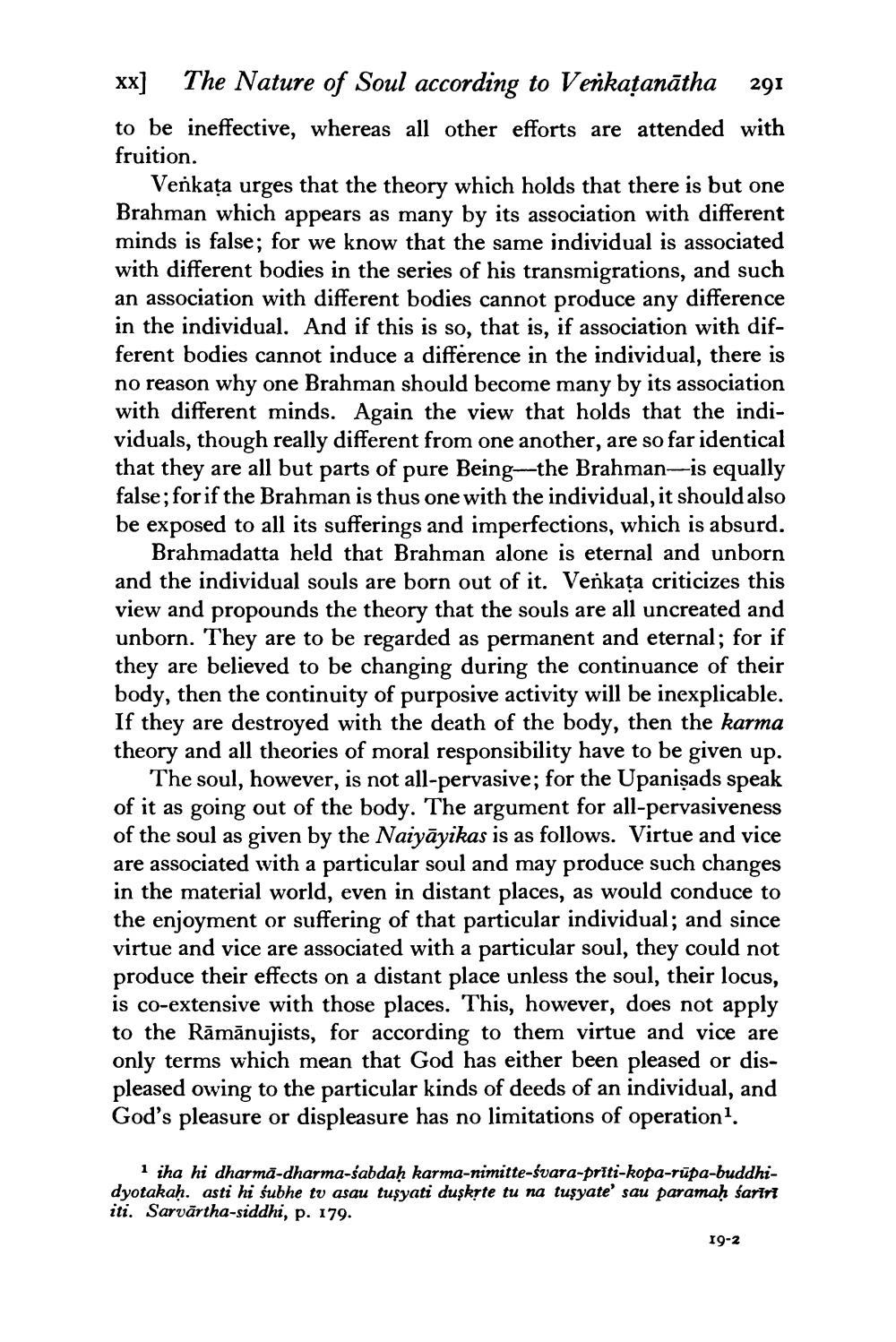________________
xx] The Nature of Soul according to Venkațanātha 291 to be ineffective, whereas all other efforts are attended with fruition.
Venkața urges that the theory which holds that there is but one Brahman which appears as many by its association with different minds is false; for we know that the same individual is associated with different bodies in the series of his transmigrations, and such an association with different bodies cannot produce any difference in the individual. And if this is so, that is, if association with different bodies cannot induce a difference in the individual, there is no reason why one Brahman should become many by its association with different minds. Again the view that holds that the individuals, though really different from one another, are so far identical that they are all but parts of pure Being--the Brahman-is equally false; for if the Brahman is thus one with the individual, it should also be exposed to all its sufferings and imperfections, which is absurd.
Brahmadatta held that Brahman alone is eternal and unborn and the individual souls are born out of it. Venkața criticizes this view and propounds the theory that the souls are all uncreated and unborn. They are to be regarded as permanent and eternal; for if they are believed to be changing during the continuance of their body, then the continuity of purposive activity will be inexplicable. If they are destroyed with the death of the body, then the karma theory and all theories of moral responsibility have to be given up.
The soul, however, is not all-pervasive; for the Upanişads speak of it as going out of the body. The argument for all-pervasiveness of the soul as given by the Naiyāyikas is as follows. Virtue and vice are associated with a particular soul and may produce such changes in the material world, even in distant places, as would conduce to the enjoyment or suffering of that particular individual; and since virtue and vice are associated with a particular soul, they could not produce their effects on a distant place unless the soul, their locus, is co-extensive with those places. This, however, does not apply to the Rāmānujists, for according to them virtue and vice are only terms which mean that God has either been pleased or displeased owing to the particular kinds of deeds of an individual, and God's pleasure or displeasure has no limitations of operation?.
1 iha hi dharma-dharma-sabdah karma-nimitte-svara-priti-kopa-rupa-buddhidyotakaḥ. asti hi śubhe tv asau tuşyati duşkşte tu na tusyate sau paramaḥ śarini iti. Sarvārtha-siddhi, p. 179.
19-2




